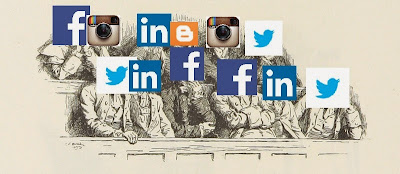It's spring, and you know what that means! No, not the return of seasonal allergies. Baseball! Yes, America's (once) favorite pastime is back, so what better time than now to take a look at the law of baseball?
We here at the Gallagher Law Library have two great books on the law of baseball. First,
The Baseball Trust: A History of Baseball's Antitrust Exemption, by Stuart Banner, as the name implies, tells the story of how Major League Baseball gained its exemption from American antitrust laws (an exemption no other sport enjoys).
In 1922, in
Federal Baseball Club of Baltimore, Inc. v. National League of Professional Baseball Clubs, et al., the Supreme Court ruled that baseball is not subject to federal antitrust law because it is not a form of interstate commerce. The great Justice Oliver Wendell Holmes, writing for the court, stated, "The business is giving exhibitions of base ball, which are purely state
affairs. It is true that, in order to attain for these exhibitions the
great popularity that they have achieved, competitions must be arranged
between clubs from different cities and States. But the fact that in
order to
give the exhibitions the Leagues must induce free persons to cross state
lines and must arrange and pay for their doing so is not enough to
change the character of the business." 259 U.S. 200, 208-09 (1922).
In 1972, the Court affirmed its holding in
Federal Baseball, and also held that baseball is exempt from
state antitrust laws as well because of the necessity for "national uniformity" in the regulation of the sport.
Flood v. Kuhn, 407 U.S. 258, 284 (1972).
Stuart Banner contends that these rulings make no sense and that baseball's unique antitrust status results not from its special place as America's favorite pastime, but from MLB's clever maneuverings through the American legal system. The book is available in our Good Reads section at KF3989. B36 2013 - come check it out! [Note: Good Reads are located on the short stacks at the west end of the skylight opening on L1, just outside of the Law Student Lounge.]
If you're looking for a briefer discussion of baseball's antitrust exemption, check out Michael Mozes and Ben Glicksman,
Adjusting the Stream? Analyzing Major League Baseball's Antitrust Exemption after American Needle, 2 Harv. J. Sports & Ent. L. 265 (2011).
Second,
The Little White Book of Baseball Law, by John H. Minan and Kevin Cole, provides a number of stories in which baseball has intersected with the law.
Each chapter tells the story of a different court case, on issues ranging from whether liability exists when a batter is hit by a pitch (
Avila v. Citrus Community College District, 131 P.3d 383 (Cal. 2006)), to the legality of fantasy baseball's use of player names and information (
CBC Distribution & Marketing, Inc. v. Major League Baseball, 505 F.3d 818 (8th Cir. 2007)), to stadium liability for spectator injuries (
Benejam v. Detroit Tigers, Inc., 635 N.W.2d 219 (Mich. Ct. App. 2001)). This book is also available in our Good Reads Section at KF3989. M563 2009.
Or if you're actually looking for the law of baseball - i.e., the rules governing the game - you can find them
here. As an exercise in statutory interpretation, try to parse Rule 2.00's definition of "infield fly" or Rule 8.05's explanation of the "balk."
And if you're looking for a way to kill hours of time, do some baseball research at
baseball-reference.com.
With your new found knowledge, get out there and watch some baseball! You can get $10 tickets with your Husky Card on "
College Nights," April 25, May 30, June 13, and September 20. Or better yet, you can catch UW baseball games at the newly renovated Husky Ballpark
for free with your Husky Card! You can find the schedule
here.














.JPG)






